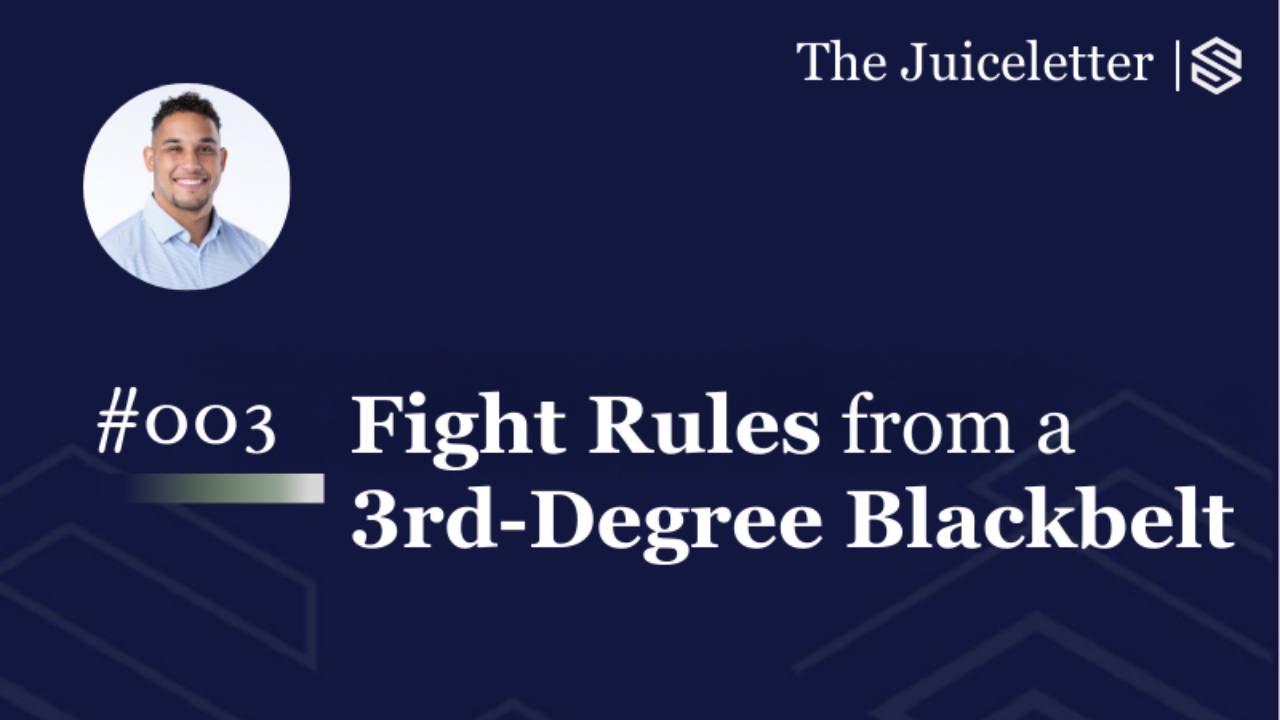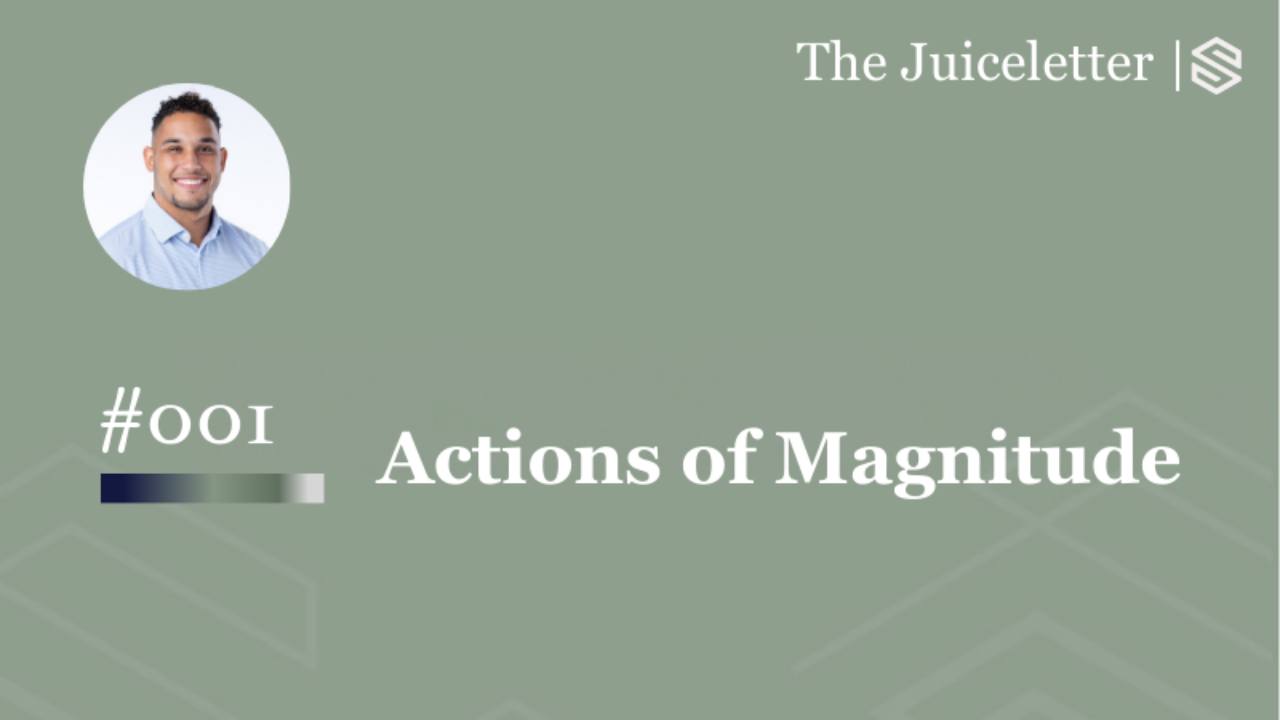004 The Signal in the Noise
The Winner is the one who stays present to their process for the longest.
This sentence sums up my 12 years of study, practice, and teaching of the mental game of sport.
Last night, I had a conversation with a friend about his upcoming high school hockey tryouts. We kept it simple and created a plan around the most important parts of his process that he needed to stay present to.
The bottom line: Whenever we take on big moments, our work is to discern our signal from the noise.
A. When you have an overabundance of inputs (aka noise)...
Examples:
- What Competitors are Doing
- The News
- Family & Friends
- Social Media
- The ”Right” Way
- The “Next Hot Thing”
- Emotions
- “Experts”
- Expectations of where you should be
- Limiting Beliefs

B...Our work is to tune out the noise so we can focus on the signal.
During loud times, I’ve found these to be a source of steadiness, clarity, and power.
- Your Vision
- Values
- Flow State (The Present)
- Your Intuition
- What is Unique to You
- Purpose
- Commitments
- Declarations of where/who you want to be
- Standard Operating Procedures (Your Process)
- Strengths
- Our Senses
- The Body

TLDR: We do not rise to the occasion; we fall to the level of our systems and our habits. If you find yourself overly consumed with noise, your only job is to find your signal. Your signal is the cue in the present moment that returns you to your process.
Practices:
- Create a Noise List of your top 5 loudest detractors - the people, things, or distractions that pull you away from your process.
- Pick one option on the list of Signals above and develop it.
- Ex. Clarify about your Values. Write out your Commitments. Ask others for feedback about your Strengths.
- Over the next week, notice what it’s like to tune into your Signal when you encounter Noise.
Bring the Juice,
Coach Seb
Authentic Business Tip: Forms of Non-Monetary Compensation
Payment is the transaction of energy from one party to another in exchange for goods or services.
In a true win-win relationship, both the client and the provider leave the negotiation feeling like they’re getting a great deal.
Payment does not always come in the form of money. If money becomes an immovable obstacle in negotiation, it is on YOU to have creative alternatives prepared to create a win-win situation.
There must be two conditions met for you to consider this route: (1) you want to work with a client and (2) both you and the client are willing to work together to create a win-win.
Below are my 7 favorite forms of non-monetary compensation.
Forms of Non-Monetary Compensation
- Flexible Timeline of Payment: Clients often have the money to pay you, but they don’t have it all right now. Instead of collecting the full payment upfront, you can spread the payment over a longer duration of time or ‘backload’ the payment - pushing a portion of the payment to the latter part of the engagement. Spreading payment terms over a longer period softens the impact on a client’s cash flow. This also demonstrates confidence in your own business (you have ample cash flow that allows you to defer payment) and a commitment to the client getting the promised result of your service.
- Pro tip: This should never be at the expense of your financial well-being.
- Testimonials: Social proof is gold. Businesses with lots of social proof ride the wave of the momentum hundreds of positive customer reviews provide. The earlier in your career, or the younger the product/service, the more valuable testimonials are.
- Pro tip: Before you start the engagement, ask the client, “If we do X and you have a positive experience, would you be willing to write and record a testimonial?”. You can even write this into your agreement.
- Referrals or Introductions: Ask the client to refer you to their colleagues. Referrals work wonders because they compress the timeline of trust that it takes to nurture a relationship.
- Pro tip: You can choose the number of referrals and the timeline of introductions before you start working together. Support your client with the introduction by giving them language that accurately represents your business.
- Feedback: Feedback is particularly valuable if you have an offer that's early in development OR if your client has a relevant skillset to your offer. As you craft your agreement, ask the client to spend X hours with you after you've completed your work together to share their experience and expertise. What you’ll learn will be worth 10x the time investment as you’ll have actionable feedback to improve your 1.0 version.
- Access: Have a key person of influence (the founder or C-Suite member) at your event or on your podcast. Generate a conversation about the service you provided them and what it was like to work with you. Then, ask them to promote it on their network
- Barter: The International Coaching Federation recommends against exchanging services as a way of payment, but I’ve heard of case studies of it working. Just be very clear about the terms - what the exchange is for, for how long, and what constitutes fulfillment. I’ve seen these get messy or lazy when both parties aren’t equally seeing the payoff.
- Pro Tip: Create a signed agreement even for causal barters - this ensures both parties are committed to delivering their work at a professional standard.
- Exposure: This could be valuable if the client gets a lot of traffic via email, social media, or on their podcast. However, this can be dicey depending on the quality of the data on hand. There is a HUGE gap between 1000 promised impressions on a social media post and 1000 promised hungry customers who want to work with you.
- Pro tip: Word of caution, if a client can’t pay your fee and is offering this, they might not have much social capital to draw on. Proceed mindfully.
Ways to Work Together
- (Re)Design Your Business to Work for You: Twice a year, I lead a small mastermind of coaches/consultants through an advanced strategy focused on building a business tailored to them. If you're interested in learning more, hit reply on this email and I’ll send along the details for the next group starting in January.
- Check out the ‘How to Monetize Your Niche on LinkedIn Webinar’: Harris Fanaroff - a dear friend and founder of Linked Revenue - and I put together a masterclass answering FAQs on how to grow your brand and income on LinkedIn. You can watch the replay here.






Responses